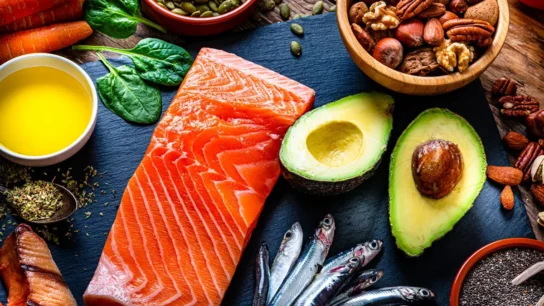We’ve all heard the familiar advice: “Drink plenty of water to stay hydrated.” It’s simple, it’s effective, and it’s widely acknowledged as the foundation of good health. However, hydration is a more complex science than simply downing glass after glass of water. In fact, there are a variety of common practices and misconceptions that can actually hinder proper hydration, despite our best intentions. From the types of fluids we consume to the timing of our hydration, understanding the nuances of hydration can make a significant difference in how well our bodies function.
Here, we explore some of the lesser-known factors to consider when it comes to hydration—things to avoid that can affect how efficiently water and other fluids work within the body.
1. Relying Solely on Caffeinated Drinks
Caffeine is often touted as a mild diuretic, which means it increases urine production and can lead to fluid loss. While moderate coffee or tea consumption doesn’t necessarily result in dehydration, relying on caffeinated beverages like coffee, soda, or energy drinks for hydration can be counterproductive.
Studies have shown that caffeinated drinks, especially in larger amounts, can have a mild dehydrating effect. A research review published in PLOS One found that although caffeine tolerance increases with regular consumption, large amounts still lead to an increased urine output, which can contribute to a net fluid loss if you’re not compensating by drinking enough water.
Furthermore, sugary caffeinated drinks, like sodas or sweetened iced teas, can also lead to blood sugar imbalances and can negatively affect your hydration status. This is because they often contain high fructose corn syrup or excessive sugars, which require water for digestion and can exacerbate dehydration.
2. Drinking Too Much Water at Once
It’s a commonly held belief that if a little water is good, more must be better—but when it comes to hydration, this can be a mistake. While it’s essential to drink water regularly, overconsumption in a short period—often referred to as “water intoxication” or “water poisoning”—can overwhelm the kidneys and lead to an electrolyte imbalance.
When you drink an excessive amount of water too quickly, your kidneys might struggle to excrete the extra fluid, leading to dilution of sodium levels in the bloodstream, a condition known as hyponatremia. Symptoms of hyponatremia can range from nausea and headache to confusion, seizures, and, in extreme cases, death.
The key is moderation. The body’s hydration needs depend on factors like activity level, environmental conditions, and individual health, but the general guideline is to drink small amounts of water consistently throughout the day rather than trying to hydrate all at once.
3. Consuming Sugary Sports Drinks Without Exercise
Sports drinks have long been marketed as essential for hydration, especially for athletes. These drinks contain electrolytes like sodium and potassium, which are vital for maintaining fluid balance during prolonged exercise. However, if you’re not engaging in high-intensity exercise or enduring long bouts of physical activity, drinking sugary sports drinks can do more harm than good.
Many sports drinks are high in sugars or artificial sweeteners, which can contribute to weight gain, spikes in blood sugar, and even dehydration in the long term. These extra sugars require additional water for proper digestion and absorption, which can leave you feeling more parched than before. If you’re not sweating it out on the treadmill or engaging in strenuous physical activities, a plain glass of water or coconut water (which naturally replenishes electrolytes) is a better choice.
4. Not Considering Electrolyte Imbalance
Hydration isn’t just about water; it’s also about the balance of electrolytes like sodium, potassium, magnesium, and calcium. These minerals are vital for fluid retention, nerve function, and muscle contractions. A common mistake people make when hydrating is focusing exclusively on water intake while neglecting the replenishment of electrolytes, especially after heavy sweating or exercise.
During intense physical activity, you lose not only water but also electrolytes, and failure to replenish these can lead to dehydration, muscle cramps, dizziness, and fatigue. While drinking water is essential, pairing it with an electrolyte-rich drink or foods like bananas, spinach, or nuts can help restore the balance that water alone can’t achieve.
5. Hydrating Only with Cold Water
Cold water can be refreshing, especially during hot weather or after intense exercise, but it’s not always the best choice for hydration, particularly if consumed in large quantities. According to Chinese medicine and some scientific studies, drinking very cold water can shock your digestive system, causing it to slow down and making it harder for your body to absorb and utilize the fluid properly.
Instead, drinking water at room temperature—or slightly cooler—can help facilitate better digestion and absorption. This is particularly important in hot weather when your body is already working to regulate temperature. Drinking water that’s too cold may actually cause a constriction of blood vessels, which in turn can hinder your body’s natural cooling processes.
6. Ignoring Your Thirst Signals
It’s easy to ignore thirst, especially if you’re busy or distracted. However, thirst is your body’s natural signal that it’s time to hydrate. Many people, especially those who are sedentary or working in air-conditioned environments, simply don’t feel thirsty until dehydration sets in, which can have negative consequences.
When we wait too long to drink water, the body starts to show signs of dehydration, including dry mouth, fatigue, headaches, and dizziness. Over time, chronic underhydration can lead to more serious health issues like kidney stones, urinary tract infections, and impaired cognitive function. It’s important to listen to your body’s thirst signals and to take preventive measures, such as setting reminders to drink water throughout the day.
7. Drinking Alcohol Without Proper Hydration
It’s well known that alcohol has a dehydrating effect on the body. Alcohol acts as a diuretic, which increases urine production and leads to fluid loss. While this is often overlooked during social occasions, drinking alcohol without compensating with adequate water intake can lead to a hangover, characterized by fatigue, headaches, dizziness, and nausea.
To mitigate the dehydrating effects of alcohol, it’s crucial to drink water before, during, and after consuming alcoholic beverages. A good rule of thumb is to have a glass of water for every alcoholic drink you consume. This helps prevent dehydration and ensures that your body stays balanced.
8. Not Adjusting Hydration for Environmental Conditions
Your hydration needs can vary greatly depending on the environment in which you live or work. Hot and humid conditions, high altitudes, or cold, dry environments can all increase your body’s need for water. In particular, individuals living in warmer climates or those who engage in physical activity outdoors during the summer months should be more mindful of their hydration needs.
When you sweat more or breathe in dry air, your body loses fluids at a faster rate, and it’s essential to increase your intake to keep pace with the demand. Similarly, when traveling to higher altitudes, you may need more water to stay hydrated because the air is thinner and contains less moisture, leading to increased fluid loss through respiration.
Conclusion
Hydration is far more intricate than simply drinking water when you’re thirsty. What you drink, when you drink it, and how you balance water with electrolytes can all play a significant role in how effectively your body stays hydrated. From avoiding excessive amounts of caffeinated or sugary drinks to ensuring you’re properly replenishing electrolytes, understanding the nuances of hydration is key to maintaining optimal health.
By being mindful of these lesser-known hydration pitfalls, you can make more informed choices that support your body’s natural processes, keeping you feeling energized, focused, and at your best. So next time you reach for a drink, think about how it’s contributing to your hydration goals—your body will thank you for it.





